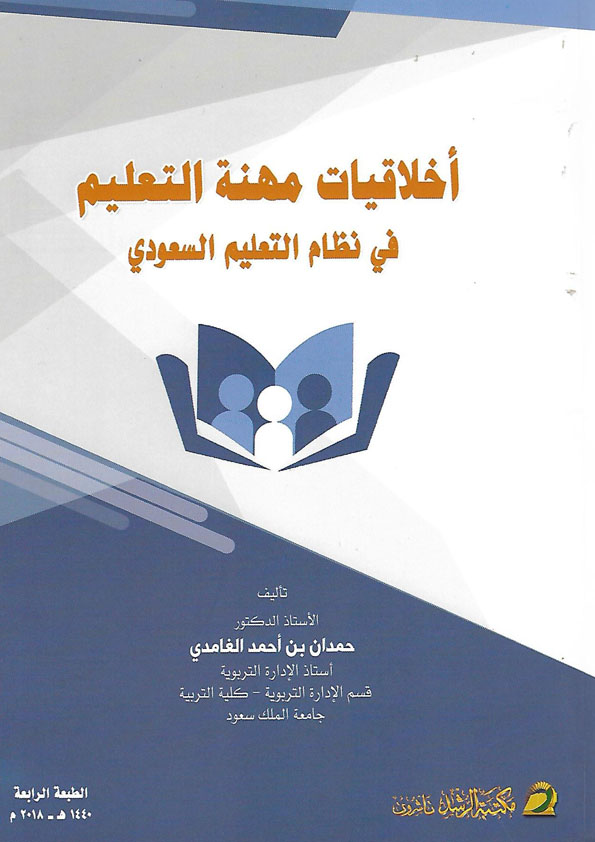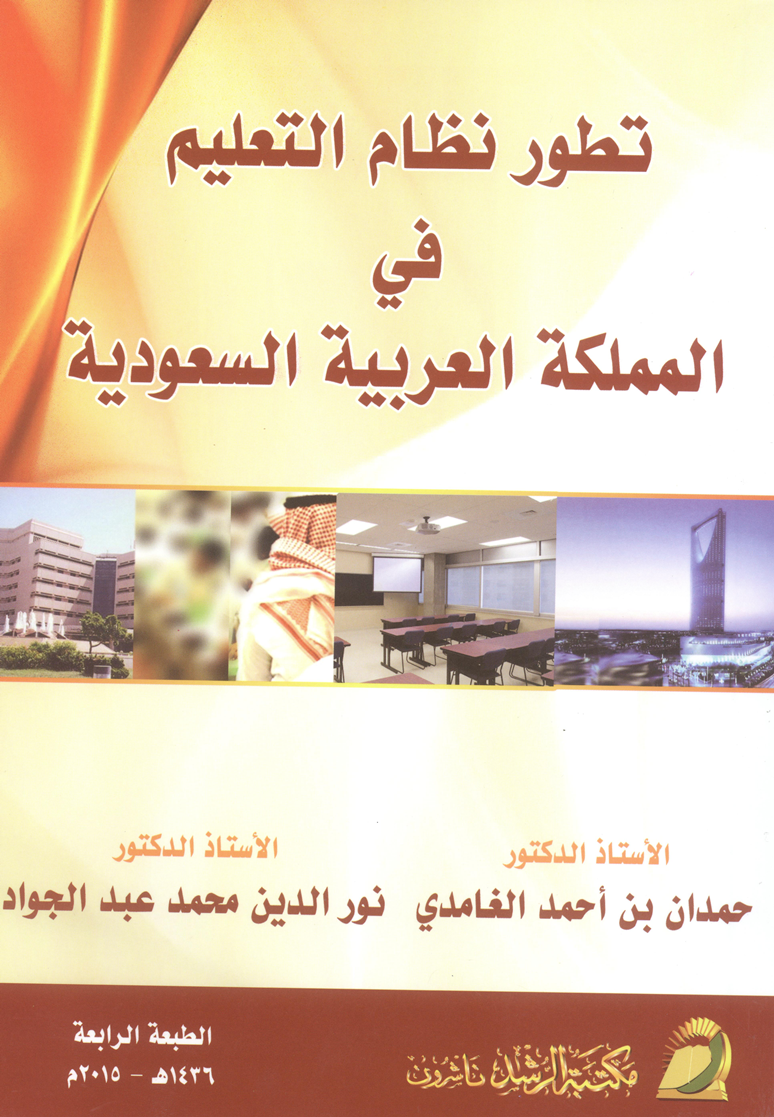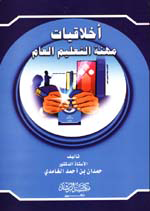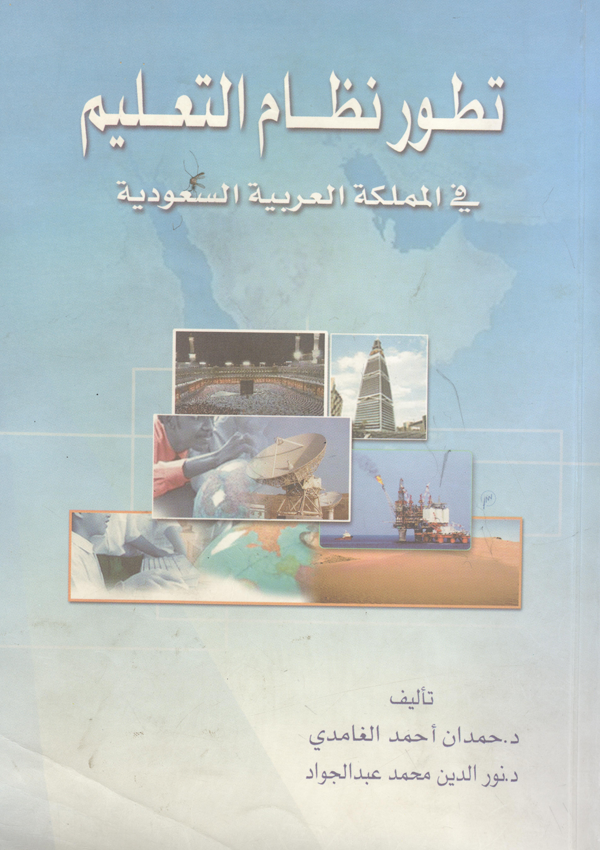
Ethics of Teaching in Saudi Educational System
Publishing City: Riyadh PUBLISHER: Al - Rashed Library
Date of Publication: 2018. Edition: 4th.
Abstract:
The subject of this book is a special one as it deals with work ethics of those who have a teaching career in the Saudi educational system. These ethics are the criteria which teachers should follow and use as a guide to which they refer for assessing their behavioral and career practices. When teachers adhere to these ethics, which are firmly based in our Islamic belief, their career develops. In fact, the way to address the crisis of ethics which society faces is through observing manners in general and teaching ethics in particular.

Ethics of Educational Management in Saudi Educational System
Publishing City: Riyadh PUBLISHER: Al - Rashed Library
Date of Publication: 2017. Edition: 1st.
Abstract:
Educational management cannot develop if only the educational system exercises more authority and external control over its staff. This should be accompanied by self-development and self-discipline which stem from educational administrators’ noble aims, sublime mission and conviction about the role of educational management in developing educational institutions and highlighting their social responsibility. The ethics of educational management do not only lie in following traditions or engraining moral values recognized by society, but they also mean making educational administrators aware of the importance and type of ethical problems which they will face in their practical life and developing their intellectual, critical and analytical skills which will enable them to face problems later on and solve them independently.

Ethics of General Education in Saudi Educational System
Publishing City: Riyadh PUBLISHER: Al - Rashed Library
Date of Publication: 2016. Edition: 3rd.
Abstract:
The subject of this book has occupied me a lot for a long time. I have been looking for a proper title for a big subject which is the ethics of teaching. For centuries, teaching ethics has been transmitted, imitated and quoted by old and contemporary philosophies without any criticism or inferences. The concept of ethics is based on philosophical and social foundations. The field of ethics includes specific actions which involve a set of rules and principles that are inclinations for individual behavior. These rules and principles are based on an existing religious, intellectual or social system. Ethical behavior is in line with the existing ethical principles in society. Unethical behavior, however, is not in line with the principles and values recognized as such by society. Education provides man with intellect and manners. It either makes the mind a creative force which makes man a history maker, or it makes man an inactive force that leads to deterioration. In this way, education makes man’s manners a controlling force which produces correct behavior, or it makes manners a source of misery due to low values. Besides, education either makes man’s motivation a supporting force for the mind as it creates satisfaction and happiness, or it makes this supporting force a source of fear and worry. So, education makes man; this is a fact we must be aware of.

The Development of Educational System in Saudi Arabia
Publishing City: Riyadh PUBLISHER: Al - Rashed Library
Date of Publication: 2015. Edition: 4th.
Abstract:
Interest in education and its system has attracted politicians who no one has ever thought will be interested in education and its system. In fact, the term ‘educational system’ has forcefully entered the dictionary of international politics and relations among states. It has been on the tongues of statesmen in their negotiations and on their priority list. For all this, the course of the educational system in Saudi Arabia has a remarkable place among educational preparation courses at the colleges of education and teachers’ colleges…..

Teaching Profession Ethics
Publishing City: Riyadh PUBLISHER: Al - Rashed Library
Date of Publication: 2007
Book Chapters:
- CH I: Educational and Ethical Values in the Trends of Philosophical Thought.
- CH II: The Historical Development of Teaching Profession Ethics.
- CH III: The Ethical and Educational Framework of Teaching Profession in Saudi Arabia.
- CH IV: Teaching Profession Ethics in Saudi Educational system.
- CH V: The Ethical Resources of Teaching Profession in Saudi Educational System.
- CH VI: Teaching Profession Ethics Protocol in Saudi Educational System.
- CH VII: The Challenges of Teaching Profession Ethics in Saudi Educational System.
- CH VIII: The Politics of Enhancing Teaching Profession ethics in Saudi Educational System.
- CH IX: Controlling Factors of Teaching Profession Ethics in Saudi Educational System.
- CH X: Teaching Profession Ethics in Saudi Educational system: Challenges of Globalization.

The Development of Educational System in Saudi Arabia
Publishing City: Riyadh PUBLISHER: Al - Rashed Library
Date of Publication: 2005.
Book Chapters:
- The Concept of Education System and the Influencing Factors.
- The Historical Framework of Saudi Educational System.
- Saudi Educational Policies.
- Early Childhood Education.
- Primary Education.
- Secondary Education.
- Teacher Education.
- Higher Education.
- Technological and Vocational Education and Training.
- Special Education.
- Private Education.
- Adult Education and literacy Programs.
- Testing.
- A Future Vision of the Saudi Educational System.

The Development of Educational System in Saudi Arabia
Publishing City: Riyadh PUBLISHER: Al - Rashed Library
Date of Publication: 2001
Abstract:
The educational system of any state reflects its culture, thought, objectives, aims and potential. So. It can be said that, ‘the state follows its educational system; it’s strong if the educational system is strong and weak if the educational system is weak’. On the other hand, the educational system is the means of the state – any state- to develop its culture, renew its thought, live up to its age, develop its resources, modernize its capabilities, etc.,. in this respect, it can be argued that the field of culture expands so as to include all aspects of life, but the basis of all this which determines losses or gains, victory or defeat, progress or ignorance, poverty or richness, etc., is education: its foundations, objectives, systems, organizations, etc…